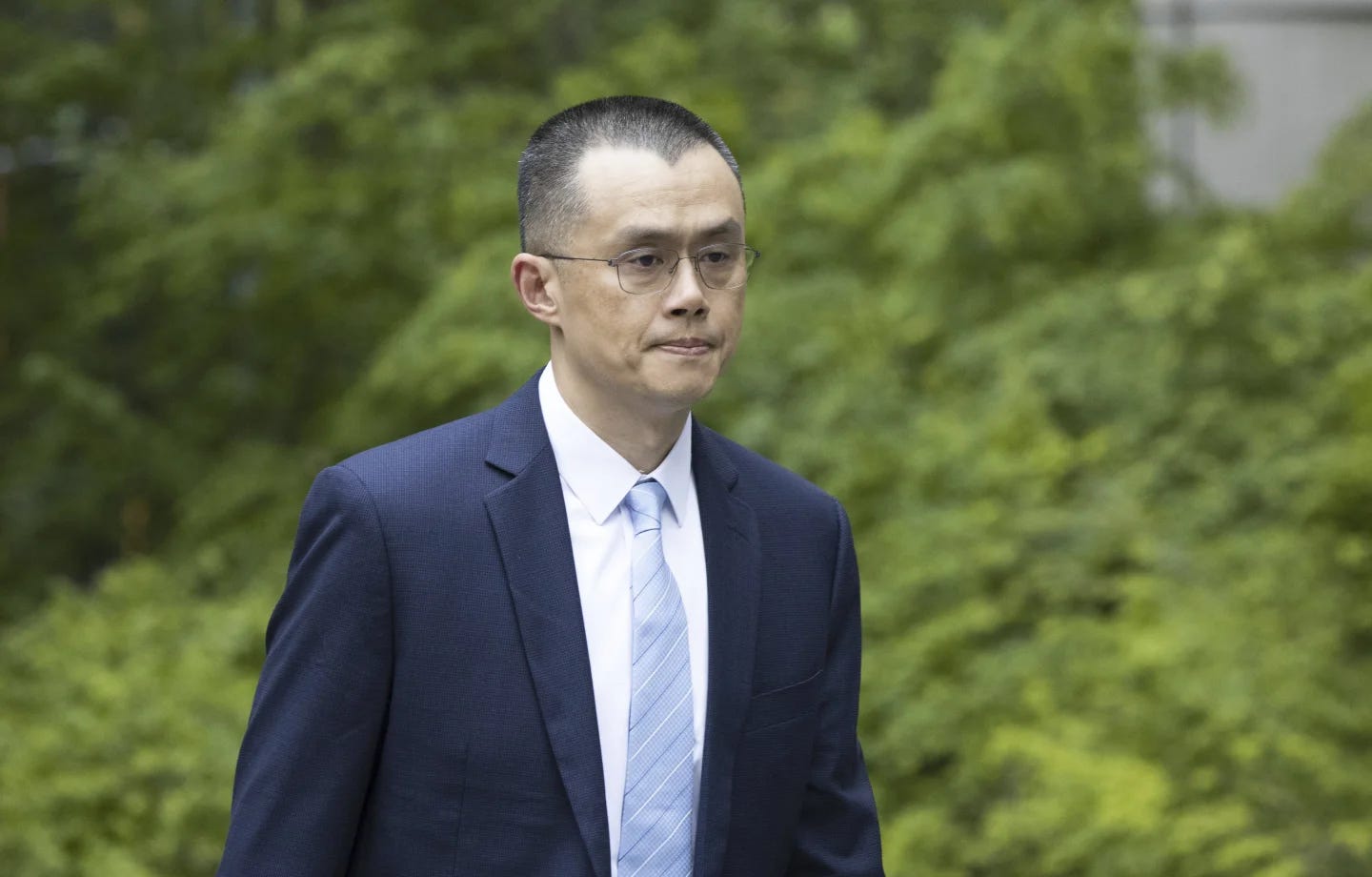Binance Founder and ex-CEO Changpeng Zhao Sentenced to Four Months Over Compliance Failures
Changpeng Zhao, with a net wealth in the vicinity of $43 billion, is set to become the wealthiest person ever to be incarcerated in a U.S. federal prison.

Introduction to the Case
In a landmark ruling that resonates through the cryptocurrency world, Changpeng Zhao, the founder of Binance, the largest global cryptocurrency exchange, was on Tuesday, 30th April, 2024 sentenced to four months in prison. The charges stemmed from his failure to implement an adequate anti-money laundering program, allowing illicit funds connected to serious criminal activities to circulate through the platform.
Details of the Conviction
U.S. Federal District Judge Richard A. Jones in Seattle emphasized Zhao's neglect of U.S. banking regulations designed to control his company's swift expansion. Zhao, aged 47, pleaded guilty last November, acknowledging his oversight failures. Despite the severe nature of the crimes, which involved funds linked to child sex abuse, drug trafficking, and terrorism, Zhao's sentence was lessened due to his admission of guilt and the hefty fines levied on Binance, which amounted to $4.3 billion. "I failed here," Zhao expressed remorsefully to the Court on Tuesday. "I deeply regret my failure, and I am sorry."
Details of the Guilty Plea Agreement
Changpeng Zhao, the founder of Binance, received a sentence markedly lighter than the three years prosecutors had originally sought. His sentence also falls below the typical sentencing guidelines of 12 to 18 months for such offenses.
Holding dual citizenship in the UAE and Canada, Zhao accepted responsibility last November. His plea agreement included resigning as CEO and paying a $50 million fine for not maintaining a robust anti-money laundering program. This lapse led to consequential violations of sanctions involving users from Iran, Cuba, Syria, and Russian-occupied parts of Ukraine, although he was never charged with being a part of the conspiracy. In addition, Binance has agreed to pay $4.3 billion in fines and forfeitures.
As part of the plea deal, Zhao waived his right to appeal any sentence up to 18 months. With an estimated net worth of $43 billion, including his stake in Binance, Zhao is set to become the wealthiest person ever to be incarcerated in a U.S. federal prison.
Comparison to Other High-Profile Cases
This sentencing draws an inevitable comparison with other recent high-profile legal actions in the tech and finance sectors. Notably, Sam Bankman-Fried, founder of FTX, another cryptocurrency giant, was sentenced to a much harsher 25 years for fraud and misuse of customer funds. The stark contrast in these cases highlights the varied nature of crimes and sentences in the realm of financial regulations and white-collar crime.
Global Impact and Precedent
Zhao's sentencing marks a significant legal precedent as he becomes the first individual convicted under the Bank Secrecy Act for these specific violations. This legislation mandates that U.S. financial institutions enforce strict monitoring of customer activities to prevent money laundering. His conviction reinforces the principle that no individual, regardless of their wealth or status, is above the law. This point is particularly resonant as the New York State trial of former US President Donald Trump unfolds, further emphasizing the impartial application of justice.
Concluding Reflections on the Due Process of Law
The sentencing of Changpeng Zhao underscores the principle that the U.S. legal system applies uniformly to all, irrespective of one's economic or social status. "No person—regardless of wealth—is immune from prosecution or above the laws of the United States," stated Judge Jones. This case, along with others like Sam Bankman-Fried's, highlights the integrity of U.S. judicial processes where due process is granted to each individual, and justice is delivered impartially. These proceedings demonstrate the legal system's dedication to enforcing the law and ensuring that even the most influential figures are held accountable for their actions.





